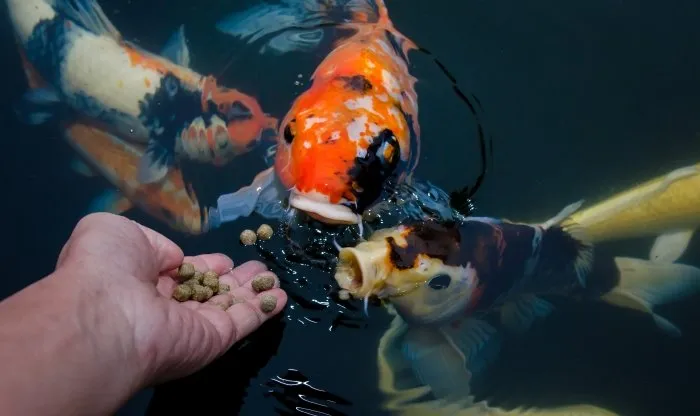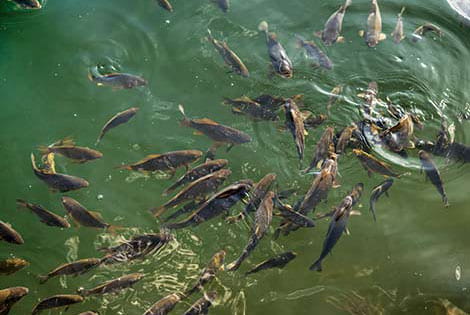Feeding fish in a pond is crucial for their health and well-being. Providing the right nutrition ensures that the fish grow properly, stay healthy, and have vibrant colors. Whether you have a small backyard pond or a larger commercial pond, understanding what to feed your fish is essential.
Types of Fish Food
There are several types of fish food available for pond fish, each serving a specific purpose and catering to different species. Here are some common types of fish food:
- Flakes: Flakes are a popular choice for feeding pond fish. They are available in various formulas for different types of fish and contain essential nutrients.
- Pellets: Pelleted fish food sinks to different depths, making it suitable for various fish species. They come in different sizes for small to large fish.
- Live Food: Live food such as worms, insects, or small fish can be fed to predatory fish species for a more natural diet.
- Freeze-Dried: Freeze-dried fish food is a convenient option that retains most of the nutrients found in live foods.
- Gel Food: Gel food is a nutritious option that can be homemade or store-bought, providing a balanced diet for pond fish.
Considerations for Feeding Pond Fish
When deciding what to feed your pond fish, there are several factors to consider to ensure they receive proper nutrition:
- Fish Species: Different fish species have varied dietary requirements. Know the species in your pond to provide appropriate food.
- Season: Fish have different nutritional needs based on the season. Adjust their diet accordingly, especially in colder months.
- Feeding Frequency: Feed fish an appropriate amount to prevent overfeeding or underfeeding, which can lead to health issues.
- Water Temperature: Fish have different metabolisms at various water temperatures, affecting their feeding habits. Adjust feeding based on temperature.
- Feeding Zone: Consider where in the water column your fish prefer to feed and choose food that suits their feeding habits.
Common Pond Fish and Their Feeding Habits
Understanding the feeding habits of common pond fish can help you choose the right food for your specific fish species:
| Fish Species | Feeding Habits |
|---|---|
| Koi | Koi are omnivores and eat both plant matter and protein-based foods. They enjoy pellets and vegetables. |
| Goldfish | Goldfish are omnivores and eat a variety of foods, including flakes, pellets, and live food like insects. |
| Tilapia | Tilapia are herbivores and primarily feed on plants. They can also eat pelleted food and vegetables. |

Credit: www.aquascapeinc.com
DIY Fish Food Recipes
If you prefer to make your own fish food, here are some simple DIY recipes you can try:
- Gel Food: Blend together vegetables, protein sources, and a gelling agent to create a nutritious gel food for your fish.
- Frozen Food: Mix fish-friendly ingredients and freeze them into cubes for a convenient feeding option.
- Vegetable Mix: Combine vegetables like peas, zucchini, and spinach for a healthy plant-based treat for your fish.

Credit: www.youtube.com
Feeding Tips for Healthy Pond Fish
Follow these tips to ensure your pond fish stay healthy and well-fed:
- Observe Feeding Behavior: Watch how your fish behave during feeding to determine if they are eating enough or too much.
- Rotate Foods: Provide variety in their diet by rotating between different types of fish food to ensure they receive all necessary nutrients.
- Avoid Overfeeding: Overfeeding can lead to water quality issues and health problems for your fish. Feed them appropriate amounts.
- Monitor Water Quality: Keep an eye on water parameters to ensure a healthy environment for your fish to thrive.
- Consult a Professional: If you are unsure about what to feed your fish or their feeding habits, consult with a fish expert for guidance.
By understanding the nutritional needs of your pond fish and providing them with a balanced diet, you can ensure they remain healthy, vibrant, and thriving in their aquatic environment.
Remember to consider the specific requirements of your fish species, the season, and other factors to tailor their diet accordingly. With proper care and feeding practices, your pond fish will flourish and bring joy to your pond for years to come.




